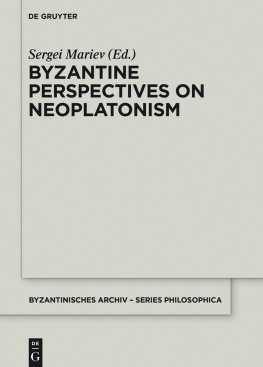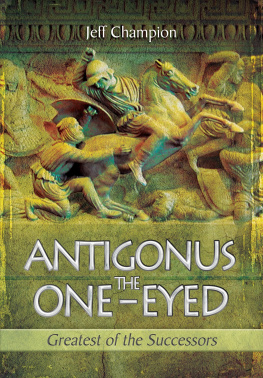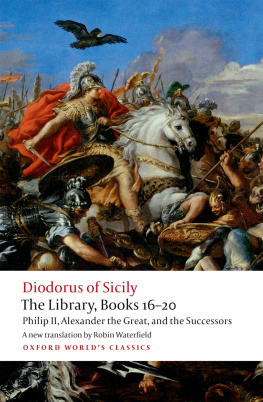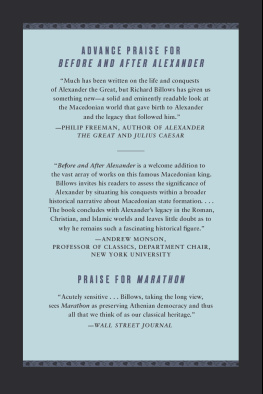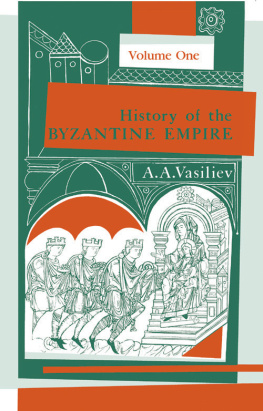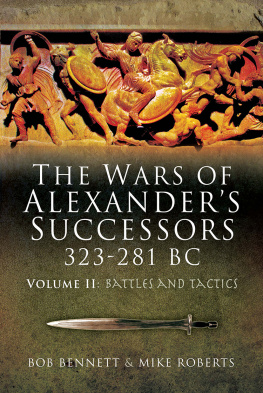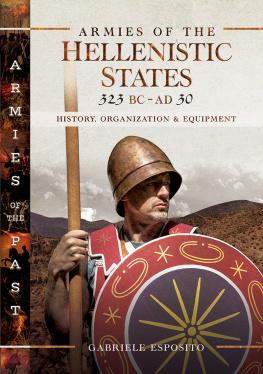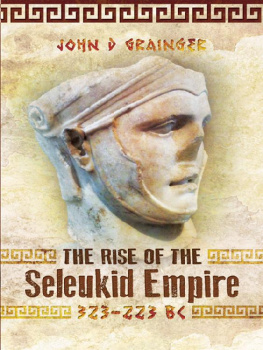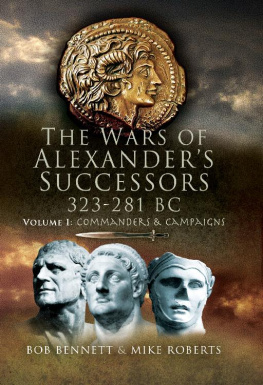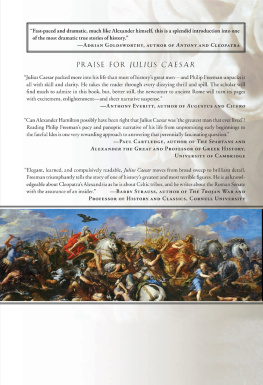Victor Alonso Troncoso (editor) - After Alexander: The Time of the Diadochi (323-281 BC)
Here you can read online Victor Alonso Troncoso (editor) - After Alexander: The Time of the Diadochi (323-281 BC) full text of the book (entire story) in english for free. Download pdf and epub, get meaning, cover and reviews about this ebook. year: 2016, publisher: Oxbow Books, genre: Home and family. Description of the work, (preface) as well as reviews are available. Best literature library LitArk.com created for fans of good reading and offers a wide selection of genres:
Romance novel
Science fiction
Adventure
Detective
Science
History
Home and family
Prose
Art
Politics
Computer
Non-fiction
Religion
Business
Children
Humor
Choose a favorite category and find really read worthwhile books. Enjoy immersion in the world of imagination, feel the emotions of the characters or learn something new for yourself, make an fascinating discovery.

- Book:After Alexander: The Time of the Diadochi (323-281 BC)
- Author:
- Publisher:Oxbow Books
- Genre:
- Year:2016
- Rating:3 / 5
- Favourites:Add to favourites
- Your mark:
After Alexander: The Time of the Diadochi (323-281 BC): summary, description and annotation
We offer to read an annotation, description, summary or preface (depends on what the author of the book "After Alexander: The Time of the Diadochi (323-281 BC)" wrote himself). If you haven't found the necessary information about the book — write in the comments, we will try to find it.
Several papers attempt to unravel the source history of the very limited remaining narrative accounts, and add additional materials through cuneiform and Byzantine texts. Specific historical issues addressed include the role of so-called royal flatterers and whether or not Alexanders old guard did continue to serve into their sixties and seventies.
Three papers reflect the recent conscious effort by many to break away from the Hellenocentric view of the predominantly Greek sources, by examining the role of the conquered, specifically the prominent roles played by Iranians in the administration and military of Alexander and his Successors, pockets of Iranian resistance which eventually blossomed into Hellenistic kingdoms ruled by sovereigns proclaiming their direct connection to an Iranian past and a continuation of Iranian influence through an examination of the roles played by certain of the Diadochis Iranian wives.
The papers in the final section analyze the use of varying forms of propaganda. These include the use of the concept of Freedom of the Greeks as a means of manipulating opinion in the Greek world; how Ptolemy used a snake cult associated with the foundation of Alexandria in Egypt to link his kingship with that of Alexander; and the employment of elephant images to advertise the authority of particular rulers.
Table of Contents
Preface (Vctor Alonso Troncoso)
Introduction (Edward M. Anson)
I
The Diadochi History in Cuneiform Documentation (Tom Boiy)
The Heidelberg Epitome: A Neglected Diadoch Source (Pat Wheatley)
Seleucus vs. Antigonus: A Study on the Sources (Franca Landucci Gattinoni)
Duris of Samos and the Diadochi (Frances Pownall)
The Diadochi, Invented Tradition, and Alexanders Expedition to Siwah (Timothy Howe)
Strabo, India and Barbequed Brahmans (Brian Bosworth)
What We do not Know about the Age of the Diadochi: The Methodological Consequences of the Gaps in the Evidence (Alexander Meeus)
II
The Battle of Gabene: Eumenes Inescapable Doom? (Edward M. Anson)
Alexanders Argyraspids: Tough Old Fighters or Antigonid Myth? (Elizabeth Baynham)
Agora XVI 107 and the Royal Title of Demetrius Poliorcetes (Paschalis Paschidis)
Adeimantus of Lampsacus and the Development of the Early Hellenistic Philos (Shane Wallace)
III
Iranians in the Diadochi Period (Marek Jan Olbrycht)
Nullis umquam regibus nisi domesticis. Cappadocia, Pontus and the Resistance to the Diadochi in Asia Minor (Luis Ballesteros Pastor)
The Female Element of the Political Self-Fashioning of the Diadochi: Ptolemy, Seleucus, Lysimachus, and their Iranian Wives (Sabine Mller)
IV
Alexander the Great, Ptolemy I and the Offerings of Arms to Athena Lindia (Giuseppe Squillace)
Propaganda Strategies and Political Document. Philip IIIs Diagramma and the Greeks in 319 B.C. (Elisabetta Poddighe)
The Alexandrian Foundation Myth: Alexander, Ptolemy, the Agathoi Daimones and the Argolaoi (Daniel Ogden )
The Diadochi and the Zoology of Kinghip: The Elephants (Vctor Alonso Troncoso)
Victor Alonso Troncoso (editor): author's other books
Who wrote After Alexander: The Time of the Diadochi (323-281 BC)? Find out the surname, the name of the author of the book and a list of all author's works by series.

